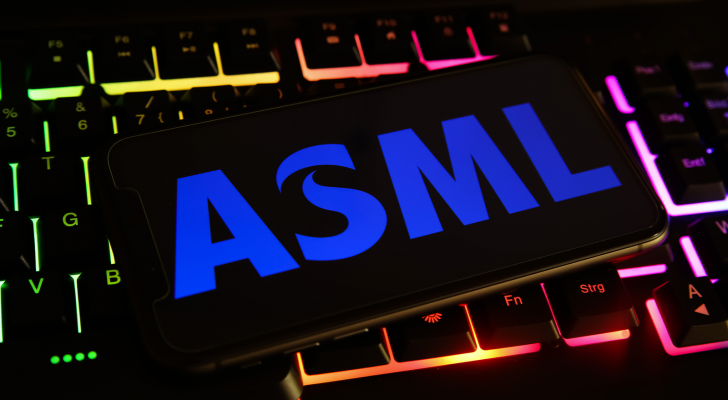7 Trailblazing AI Stocks to Buy on Any Weakness
The transformative power of artificial intelligence (AI) — with regards to drug makers and banks to oil companies to every firm that carries out intensive sales activities — is widely known. Yet in spite of all of these points, it appears that the Street — which has been much more focused on a one percentage point change in bond rates lately than the revolutionary power of AI — is giving very few AI stocks the credit they deserve. So, here are seven top-notch AI stocks to buy on weakness going forward.
iCAD (ICAD)

Source: shutterstock.com/everything possible
iCAD’s (NASDAQ:ICAD) products use artificial intelligence to effectively detect breast cancer. It has also extensively integrated Alphabet’s (NASDAQ:GOOG,NASDAQ:GOOGL) technology with its products.
In fact, iCAD earlier this year received the right to integrate Google’s AI technology with its 2D mammography system. Along the way, Google’s AI should significantly enhance the capabilities of iCAD’s offerings. Even better, Canada’s health regulator, Health Canada, approved iCAD’s breast cancer risk assessment solution, Profound Risk version 2.0. The approval should meaningfully increase iCAD’s revenue and suggests that the company can expand to many overseas countries.
InvestorPlace - Stock Market News, Stock Advice & Trading Tips
I believe that iCAD’s current market capitalization of just $49 million greatly underestimates its long-term potential.
Schrodinger (SDGR)

Source: Shutterstock
Schrodinger (NASDAQ:SDGR) uses a combination of AI and physics to greatly speed up the drug discovery process and significantly increase the chances of developing successful drugs. The company’s software predicts whether drug candidates can attach to structures within the body, such as proteins. SDGR’s LiveDesign system provides drug makers with “predictive modeling” capabilities.
In other words, it uses massive amounts of data to attempt to determine whether a molecule can become an effective drug. The platform also suggests methods that can be used to improve the efficacy of potential drugs.
Many drugmakers use SDGR’s technology, including Johnson & Johnson (NYSE:JNJ), Merck (NYSE:MRK), and Bristol-Myers Squibb (NYSE:BMY). All told, SDGR has an astounding total of about 1,750 customers, as well as 13 drugs that it’s actively developing in cooperation with other firms. In addition, the company expects its revenue from selling its software to surge 15% to 18% this year, with much of the growth coming from existing customers. The latter point shows that the company’s software is paying dividends for its customers.
Super Micro (SMCI)

Source: shutterstock.com/Den Rise
Super Micro’s (NASDAQ:SMCI) – whose servers are used to facilitate the development of AI — has an extensive partnership with Nvidia (NASDAQ:NVDA).
Given SMCI’s partnership with NVDA and the relative affordability of its products, Super Micro has had trouble meeting the demand for its offerings. Wall Street analysts are fairly enthusiastic about SMCI stock, as seven of the nine analysts who have issued notes on it in the last 90 days have either “strong buy” or “buy” ratings on the shares.
On Sept. 19, British bank Barclays started coverage of SMCI stock with an “overweight” rating. The bank contended that “SMCI is well positioned to capture the rising AI server opportunity with more share gains ahead driven by its superior design capability and strong AI partnerships.”
ASML (ASML)

Source: Ralf Liebhold / Shutterstock
ASML (NASDAQ:ASML) creates and sells machines used to make semiconductors. The firm’s machines are able to make smaller chips than any competing product.
According to Seeking Alpha columnist Vlad Deshkovich, the exceptionally small chips, which are exclusively produced by ASML’s machines, are going to be utilized to create AI-enhanced processors for many products. In other words, these small chips will be made more efficient with AI and will be used to power many products, including offerings from both Apple (NASDAQ:AAPL) and Microsoft (NASDAQ:MSFT).
Additionally, the overall demand for chips is going to climb because they are used to develop AI. The latter trend should boost ASML going forward. And very encouragingly, ASML’s net profit soared 35% year-over-year in Q2, coming in at 1.9 billion euros, while the company expects its net sales to jump nearly 30% this year.
Alphabet (GOOG, GOOGL)

Source: IgorGolovniov / Shutterstock.com
Multiple investment banks expect Alphabet to benefit a great deal from AI. Piper Sandler, for example, expects Alphabet’s Google Cloud unit to be boosted by its utilization of AI.
Morgan Stanley is also upbeat on Google Cloud with the AI boom. The firm believes that stepped-up utilization of the technology will result in higher demand for cloud offerings. Additionally, the firm believes that the explosion of AI will enable Google to monetize the large amount of data that it has accumulated. If fact, Morgan Stanley estimates that this monetization could boost Alphabet’s annual revenue by $10.8 billion. Moreover, I believe that AI could significantly enhance the capabilities of Google’s search engine by providing more targeted results for users’ queries.
ServiceNow (NOW)

Source: Sundry Photography / Shutterstock.com
ServiceNow (NYSE:NOW), which develops IT automation tools, is a pioneer in providing advanced, AI-powered services. The company has launched an AI-powered system that automatically summarizes interactions between customer service agents and customers. These summaries presumably save agents a great deal of time that can be used to facilitate future interactions with customers.
ServiceNow has also launched a “text-to-code” tool that allows companies to program software using “normal” human language. NOW’s offering has reached the market ahead of a similar product being developed by Microsoft (NASDAQ:MSFT). The latter offering is due to be released by MSFT for all customers on Nov. 1 and will cost $30 per user per month. NOW could also charge less than MSFT and gain market share by underselling MSFT.
Last but not least, ServiceNow has partnered with Nvidia and IT consulting firm Accenture (NYSE:ACN) in order to assist companies with creating and integrating AI. With a huge number of companies starting to utilize AI and the huge demand for Nvidia’s offerings, I believe that this alliance will be very lucrative for NOW.
Microsoft (MSFT)

Source: Asif Islam / Shutterstock.com
ServiceNow’s AI-based tool that’s used to simplify computer programming has gotten to the market before Microsoft’s similar offering. However, I believe that MSFT’s offering, called CoPilot and due to be launched fully on Nov. 1, will still be quite lucrative for MSFT.
In addition, according to Microsoft, CoPilot will also provide assistance with a variety of other IT tasks. It will also allow users to “complete tasks with ease” while enabling difficult projects to become “simple.”. Moreover, since AI has increased the demand for cloud services, MSFT’s cloud unit, Azure, should get a big boost from the proliferation of AI, too.
On the date of publication, Larry Ramer held long positions in SMCI, SDGR, and ICAD. His wife held a long position in NOW. The opinions expressed in this article are those of the writer, subject to the InvestorPlace.com Publishing Guidelines.
Larry Ramer has conducted research and written articles on U.S. stocks for 15 years. He has been employed by The Fly and Israel’s largest business newspaper, Globes. Larry began writing columns for InvestorPlace in 2015. Among his highly successful, contrarian picks have been PLUG, XOM and solar stocks. You can reach him on Stocktwits at @larryramer.
More From InvestorPlace
Musk’s “Project Omega” May Be Set to Mint New Millionaires. Here’s How to Get In.
ChatGPT IPO Could Shock the World, Make This Move Before the Announcement
The Rich Use This Income Secret (NOT Dividends) Far More Than Regular Investors
The post 7 Trailblazing AI Stocks to Buy on Any Weakness appeared first on InvestorPlace.
